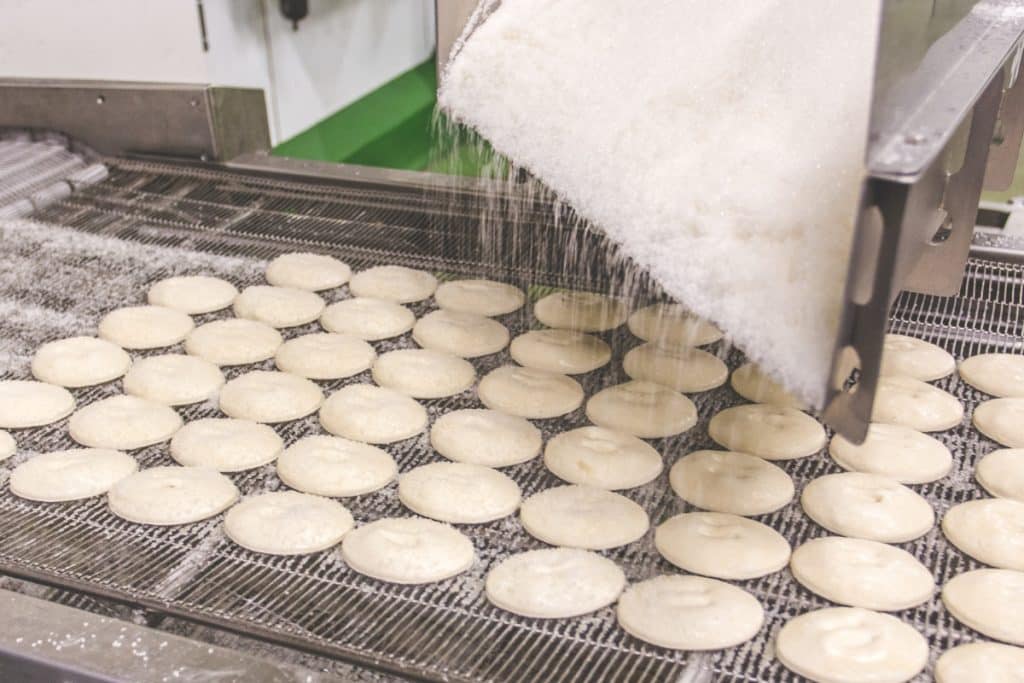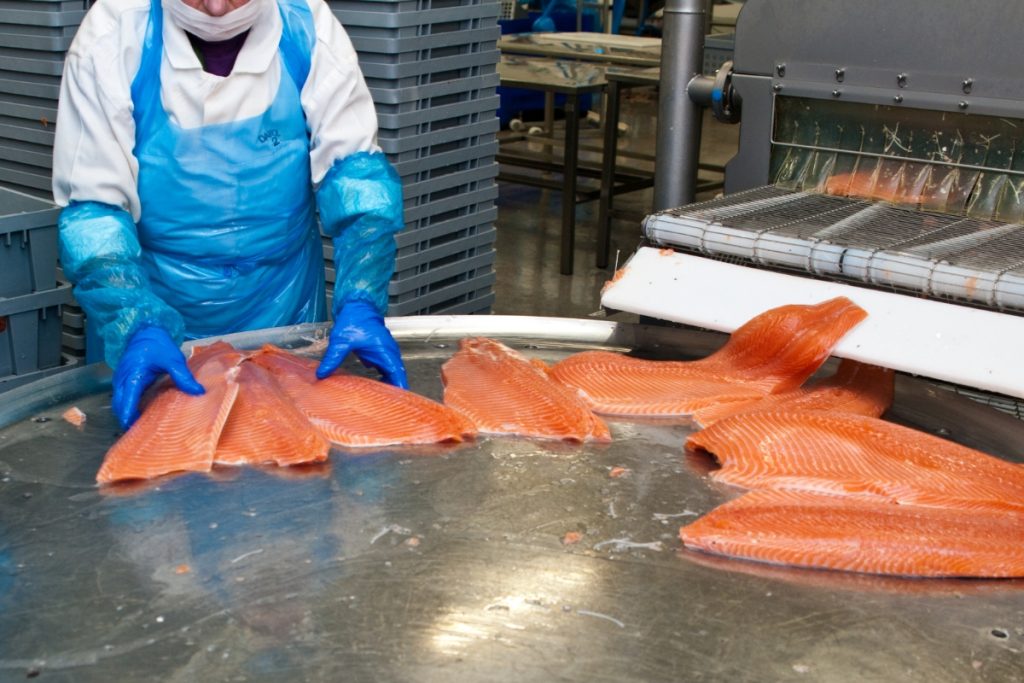Quality control is a significant function in the success and running of every manufacturing business. The process becomes even more crucial when handling raw materials for companies dealing with food products. These companies need an effective ERP, or enterprise resource planning, system to help maintain the quality of their raw materials, produce safe products, and meet the standard industry compliance regulations.
You should consider implementing the best ERP solution to ensure your company uses high-quality raw materials in its process. Not adhering to food and beverage industry compliance standards will expose your business to operational shutdowns and financial losses. Here is how you can use ERP to improve efficiency in how your company handles the receipt and storage of raw materials.
Do I Need a Food ERP System?
It is practically impossible to start and run a food production company without an ERP system, mainly because of the ever-changing FSMA regulations. Most of the time, you’ll find your business incurring fines due to non-compliance.
Most food and beverage manufacturers prioritize ensuring compliance with current and future regulations. Here is why you need an ERP to help with raw materials management.
Improved Food Safety
ERP systems tailored for food and beverage manufacturing companies improve the final products’ overall safety. These systems help track ingredient attributes, expiration dates, and other crucial details to guarantee a safe product.
Your company can streamline its food processing function while staying compliant and achieving the highest quality. Manufacturers should understand how reliable ERP solutions are in controlling critical factors in the process, like allergens and ingredients.
Recall Management
The significance of your food ERP system extends up to the final stages of production. It is practically impossible for your company to track raw materials from production to shipped goods without an ERP solution. Manually handling this task will have you sorting through hundreds of files for days.
Implementing a food ERP system can get the needed control and traceability of finished batches. It helps find questionable ingredients and track the raw materials during a recall. You become better positioned to present the required documentation as proof within FDA’s reporting time frame, streamlining your recall management.
Manufacturing Cost Control
Manufacturing companies with scattered cost data find it challenging to control their costs. Implementing an ERP system promotes more effective manufacturing modules like lean manufacturing and JIT to track expenses and determine the exact figure required for optimum functionality.
You should find the ideal ERP system to manage costs, and budget, develop forecasts, and perform the necessary analysis. By decreasing production, administrative, inventory control, and marketing costs, your company will reduce its operating costs effectively.
Lot Traceability
The ability to trace your raw materials in the already released batches is another reason you need a food ERP solution for your manufacturing company. This feature also allows you to track all production and distribution phases. You can use the data collected to:
- Enhance the integrity and image of your brand
- Alleviate compliance costs
- Improve company performance
- Gain real-time visibility
How ERP Helps Manage Food & Beverage Compliance
Quality Control
All manufacturers and distributors must comply with strict health requirements in the food and beverage industry. Failure to meet these compliance requirements will have your company facing severe consequences from the regulatory agencies.
One requirement is that all foods and non-alcoholic beverages have a limited shelf life when it is ideal for human consumption. Your ERP system handles quality control in all processes, cross-checking for specific product attributes. The system will automatically flag down and quarantine non-compliant items to avoid distributing low-standard units.
Scheduling
Another crucial consideration when dealing with food and beverages is the strict production and transportation timeline. This timeline focuses on how long you can preserve a product’s quality and considerably adds pressure to the entire supply chain.
All items need to be at the right place at the ideal time to achieve compliance. You risk investment loss if you miss specific production or delivery deadlines while increasing risk during an audit.
You can manage your production and shipping using an ERP solution like GoldFinch ERP for planning and scheduling. It becomes easier to identify conflicts in the processes by allowing you to automate timetables depending on your company’s requirements and priorities.
Inventory Traceability
Non-compliance is not an option for food and beverage companies despite the many regulations implemented in the industry. Therefore, there is a need for crucial monitoring and analysis of each package to reduce the risk of non-compliance. The uncertainties in handling the investigation manually make it ideal for companies to consider ERP implementation.
Your ERP has a traceability feature that allows manufacturing companies to maintain accurate and updated inventory reporting. In case of contamination, you can track the packages and issue quicker recalls of harmful products. You are more likely to streamline compliance monitoring across the different distribution levels by using real-time manufacturing information.
Material Tracking
Material tracking is also as crucial as inventory tracking in food and beverage manufacturing companies. This practice ensures that specific ingredients do not find their way into the wrong products while preserving the components’ freshness.
Implementing an ERP solution provides your company with recipe and material tracking to facilitate precise monitoring of all components in the supply chain. You can discover substandard ingredients in most products through detailed reporting on the packaging, improving transparency.
Collaboration
Implementing a food ERP system in your manufacturing company also facilitates successful collaborations with other businesses involved in the supply chain. The partnership helps mitigate human error, which may affect non-compliance at different supply chain points. Supervisors and top-level executives also work together to find practical solutions for any breach in compliance to help streamline collaboration efforts.
Conclusion
An ERP solution is crucial for all manufacturing companies to maintain raw materials quality and industry compliance. The implemented system will help address industry-specific issues like quality control and lot traceability to provide valuable insight and lower your operational costs. GoldFinch ERP is among the few solutions that help to prevent profit loss or shutdown by ensuring you remain FDA- and EPA-compliant.



